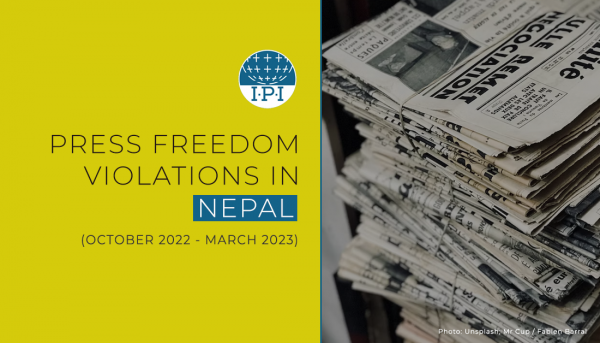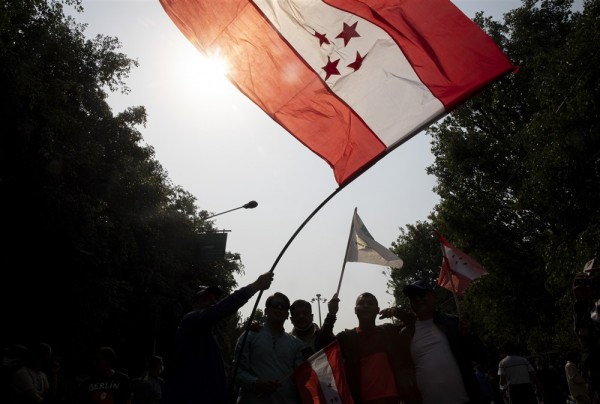The International Press Institute (IPI), the global network of editors, leading journalists and media executives in over 112 countries, condemns in the strongest possible terms the severe restrictions on press freedom included in the “Ordinance Amending some of the Nepal Act related to Media, 2062,” promulgated by King Gyanendra on 9 October.
The ordinance will strengthen the state’s legislative ability to interfere with the press and threatens to consolidate efforts to silence the independent media which have been ongoing since King Gyanendra dismissed the government and assumed direct power in February 2005.
The ordinance, which proposes sweeping amendments to several laws enshrined in the Nepalese constitution including the Radio Act 2014, the National News Agency Act 2019, the Press and Publication Act 2048, the Press Council Act 2048, the National Broadcasting Act 2049 and the Defamation Act 2016, has incorporated tighter provisions for content, ownership, and penalties.
Of particular concern to IPI are the new provisions that bar FM stations from broadcasting news related programmes and the broadening of the definition of material that cannot be broadcast. The ambiguously worded definition now includes “any subject matters with negative effects to political parties,” “offensive matters,” and “any matters against non-aligned foreign policy of Nepal,” amongst other things.
Other provisions expand the level of protection for state authorities from public scrutiny by prohibiting any news items that cause “hatred or disrespect” not only of the King but now also of “the King and members of the royal family.”
Provisions that heavily increase penalties for violations of the press law indicate a direct attempt on the part of the state to intimidate journalists, editors and publishers. In most cases fines have been increased ten-fold. The penalty for publishing defamatory items has changed from a maximum of Rs. 10,000 to a maximum of Rs. 100,000 (approx. US $ 1, 434) while anyone publishing, translating or importing banned items will now be subject to a penalty of up to Rs. 500,000 (approx US $ 7,168).
Despite calls from the international community to repeal clauses in the penal code that allow for the imprisonment of journalists, the ordinance also includes potential prison sentences for defamation via broadcast, publishing or electronic means.
Speaking about the Ordinance, IPI Director Johann P. Fritz said, “Plans announced in recent days by King Gyanendra to have local elections in the coming months as a step towards the restoration of democracy are profoundly undermined by his ongoing efforts to gag the independent media.”
“It is outrageous that the King would make public statements regarding the planning of elections while, at the same time, taking actions to intimidate and silence journalists who will monitor their fairness and accessibility. Attempts to suppress the media will deeply damage the credibility of those elections and provide further evidence that the King is willing to undermine the country’s hard won democracy.”
“We call on the King to ensure that the responsible authorities rescind this Ordinance immediately and refrain from supporting legislation that so completely curtails press freedom and the rights of journalists and media workers in Nepal.”


